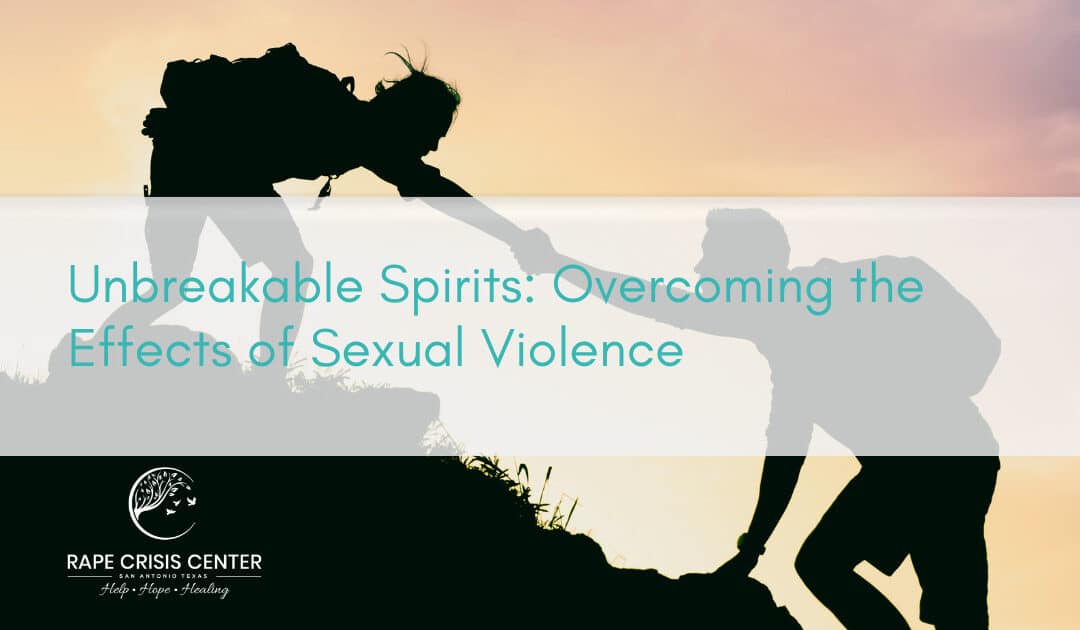At the Rape Crisis Center of San Antonio, we stand alongside survivors of sexual assault, offering empowerment, education, and advocacy to help them heal and rebuild their lives. Sexual violence can shatter the very core of a person, leaving long-lasting effects on physical, emotional, and psychological well-being. In this blog post, we will explore the effects of sexual violence and provide guidance on finding the right help and support to manage these effects.
Understanding the Effects
Survivors of sexual violence often experience a range of profound and complex effects. It is essential to acknowledge these effects as real and valid responses to trauma. Common effects of sexual violence include:
- Post-Traumatic Stress Disorder (PTSD): Survivors may suffer from flashbacks, nightmares, and severe anxiety, often diagnosed as PTSD.
- Emotional Distress: Feelings of sadness, anger, guilt, and shame can be overwhelming, leading to depression and anxiety disorders.
- Disrupted Relationships: Sexual violence can lead to trust issues and difficulty forming healthy connections with others.
- Physical Health Consequences: Survivors may experience physical injuries, sexual dysfunction, and long-term health problems resulting from the assault.
- Substance Abuse: Some survivors may turn to drugs or alcohol to cope with their pain.
Finding the Right Help and Support
Navigating the path to recovery and healing from the effects of sexual violence is a challenging journey, but it is possible with the right help and support.
Here are key steps to help survivors find the support they need:
- Seek Professional Help: Trauma therapists and counselors with expertise in sexual assault can provide a safe and supportive environment for survivors to work through their experiences.
- Connect with a Supportive Community: Join a support group specifically for survivors of sexual violence. Sharing your experiences and feelings with others who have had similar experiences can provide a sense of community, understanding, and validation.
- Reach Out to Helplines: National or local helplines, like RCC (Rape Crisis Center), can provide immediate support, information, and resources for survivors in crisis. For 24-hour crisis support, chat with a trained crisis intervention specialist over the phone at (210) 349-7273 or through Online Chat.
- Empower Yourself Through Education: Knowledge is a powerful tool. Learn about the effects of trauma, your rights, and available resources to gain a deeper understanding of your own experiences and recovery journey.
- Lean on Trusted Friends and Family: Sharing your story with loved ones can provide emotional support, helping you feel less alone in your healing process.
- Legal and Medical Support: Reporting the assault to law enforcement and seeking medical attention are crucial steps for many survivors. This ensures that you receive the necessary care and support for your physical well-being.
- Practice Self-Care: Prioritize self-care in your daily life, including practices such as meditation, exercise, mindfulness, and relaxation techniques. These activities can help manage symptoms and reduce stress.
- Be Patient and Kind to Yourself: Healing takes time, and it’s important to practice self-compassion. Understand that the journey may have its ups and downs, and it’s okay to reach out for help when needed.
Survivors of sexual violence possess incredible strength and resilience. With the right help and support, they can overcome the effects of this trauma and rebuild their lives. At the Rape Crisis Center, we are here to walk this path with you, providing empowerment, education, and advocacy. Remember that healing is possible, and you are never alone in your journey toward recovery. Together, we can help you reclaim your strength, rebuild your life, and find hope.

